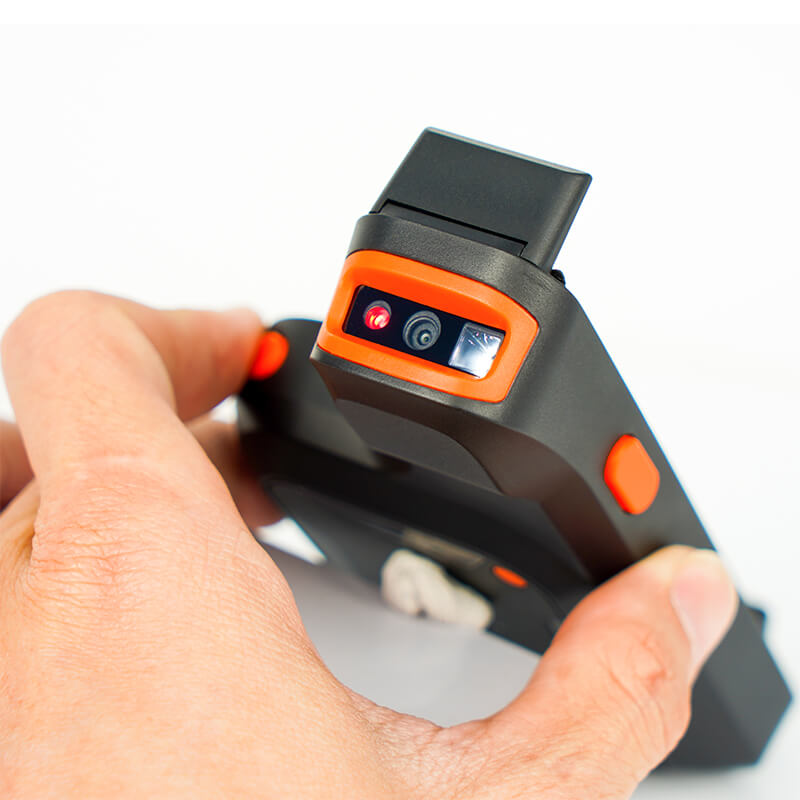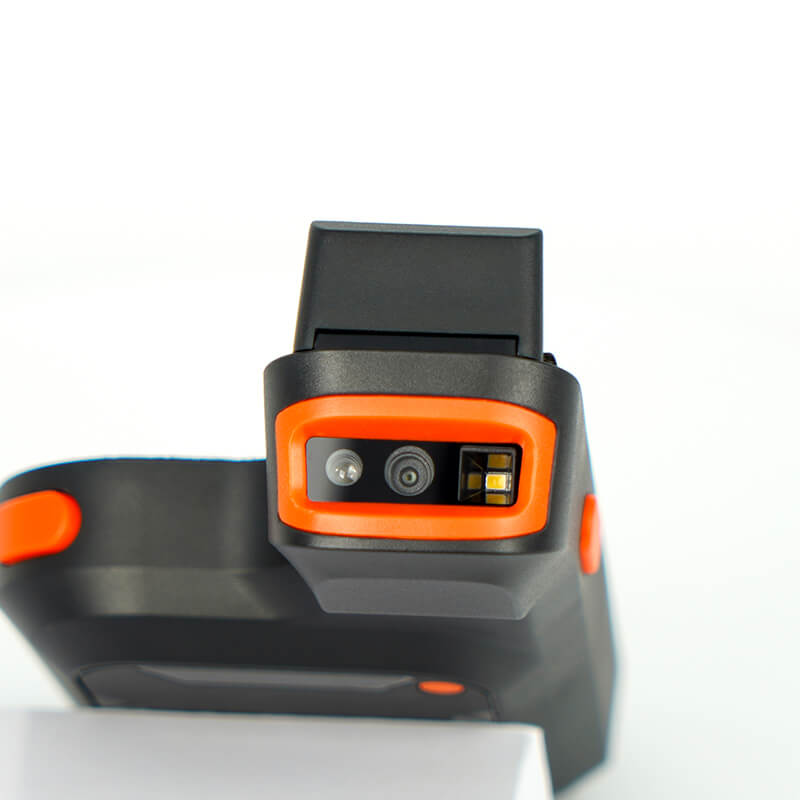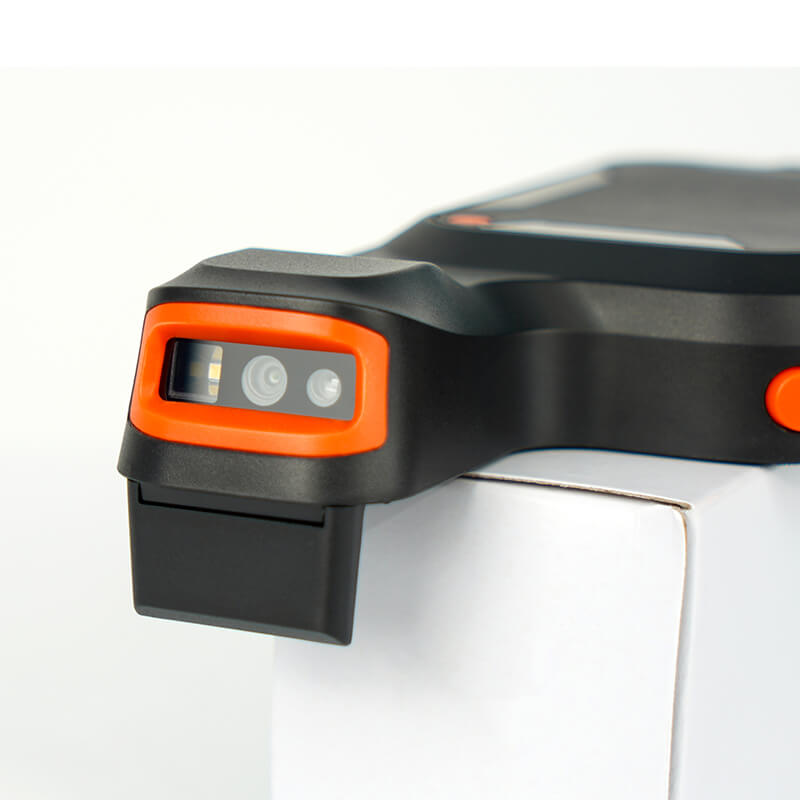In today's fast-paced retail industry, efficiency and precision are critical. Portable barcode scanners have developed as valuable tools for streamlining operations, reducing errors, and improving consumer experiences. This article delves into the functionalities, advantages, and future trends of portable barcode scanners in the retail sector.
Understanding Portable Barcode Scanners
Portable barcode scanners are handheld devices that read and decode information stored in barcodes. They use optical sensors or laser technologies to capture the barcode pattern and transform it into digital data that can be processed by inventory management or point-of-sale (POS) software. The two primary types of barcodes are 1D (one-dimensional) and 2D (two-dimensional), each serving various applications in retail.
Working Principle
The operational mechanism of a barcode scanner involves the following steps:
Scanning: The scanner emits a beam of light (laser or LED) onto the barcode.
Reflection: The light reflects off the barcode, which consists of alternating dark bars and light spaces.
Data Conversion: The scanner captures the reflected light and converts it into an electrical signal, which is then decoded into readable data.
This process enables rapid data entry, significantly reducing the time required for manual input and minimizing errors associated with human intervention.
Benefits of Portable Barcode Scanners in Retail
The integration of portable barcode scanners in retail operations offers numerous benefits that enhance efficiency and accuracy.
1. Improved Inventory Management
Barcode scanners automate inventory tracking, allowing retailers to maintain accurate stock counts and streamline supply chain operations. By promptly scanning products during stock intake and replenishment, businesses may reduce discrepancies between real stock and recorded numbers. This leads to higher inventory turnover and lower carrying costs.

2. Expedited Checkout Processes
In retail environments, portable barcode scanners expedite the checkout process by swiftly processing product information. This reduces customer wait times and enhances the overall shopping experience. Cashiers can quickly obtain product information and prices by scanning barcodes, avoiding manual entry errors that can lead to customer dissatisfaction.
3. Enhanced Data Analysis
The data collected through barcode scanning can be analyzed to reveal insights into sales trends, customer buying behavior, and inventory performance. This data allows retailers to make more educated decisions, optimizing inventory management and increasing sales growth. Understanding which products are popular, for example, might assist merchants in adjusting their inventory levels accordingly.
4. Cost Reduction
By automating processes, portable barcode scanners reduce labor costs associated with manual data entry and inventory management. They help prevent inventory loss and expired goods through accurate tracking and timely replenishment, further lowering operational costs.
5. Improved Customer Experience
The efficiency brought by barcode scanners directly translates to a better customer experience. Faster checkouts and more precise pricing reduce customer annoyance, resulting in improved satisfaction and loyalty. Additionally, accurate product information ensures that customers receive the correct items without confusion.

Guangzhou Syble Portable Barcode Scanner
Key Features of Portable Barcode Scanners
To maximize their effectiveness, portable barcode scanners come equipped with various features tailored to retail needs.
1. Compatibility with Multiple Barcode Types
Modern scanners can read various barcode formats, including 1D and 2D barcodes, ensuring versatility in application across different retail environments. This compatibility allows retailers to implement a unified scanning solution regardless of the barcode systems in use.
2. Connectivity Options
Portable barcode scanners offer both wired and wireless connectivity options, allowing for flexible integration with existing systems. Wireless scanners enable greater mobility, allowing staff to scan items without being tethered to a specific location.
3. Durability and Ergonomics
Many portable barcode scanners are designed to withstand the rigors of retail environments. They often feature rugged designs that can endure drops and spills, making them suitable for various operational settings. Ergonomic designs also ensure user comfort during extended periods of use.
4. High Scanning Speed and Accuracy
Advanced barcode scanners boast high-speed scanning capabilities, enabling them to read multiple barcodes per second. This efficiency is crucial during peak shopping times when customer flow is high. Additionally, improved recognition accuracy minimizes scanning errors, ensuring that inventory data remains reliable.
Challenges and Considerations
While portable barcode scanners offer numerous advantages, retailers must consider certain challenges when implementing this technology.
1. Initial Investment
The upfront costs associated with purchasing barcode scanners and integrating them into existing systems can be significant. Retailers must weigh these costs against the long-term benefits of increased efficiency and accuracy.
2. Training and Adoption
Staff training is essential to ensure that employees can effectively use barcode scanners. Retailers must invest time and resources in training programs to realize the technology's potential while minimizing operational disruptions during the transition period.
3. Maintenance and Upkeep
Regular maintenance is necessary to keep barcode scanners functioning optimally. Retailers should establish routines for checking and servicing scanners to prevent downtime and ensure reliability during critical operational periods.
Conclusion
Portable barcode scanners are indispensable tools in the retail sector, enhancing efficiency and accuracy across various operations. These devices significantly improve the customer experience and lower operational costs by automating inventory management, speeding up checkout processes, and improving data analysis. As technology continues to evolve, the future of portable barcode scanning promises even greater advancements, ensuring that retailers remain competitive in an increasingly dynamic marketplace.

